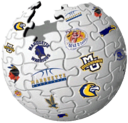Just some additional comments on the decision to hire Buzz, and then I’ll back off. My opinion on the Buzz hiring is that I believe Marquette made a bad decision. It's not a reflection on Buzz... just an opinion that there were more qualified candidates out there. There is an excellent book called "Winning Decisions", which covers the process that people should use to make good decisions. Really important decisions (like say picking a basketball coach) should follow a structured process such as:
- Determine the crux of the issue
- Create decision criteria and weight those criteria
- Gather Information
- Make the decision
- Learn from your decision
What’s the crux of the issue?
The first, and most important step, is to figure out the right frame for the problem. In other words, for Marquette, what was the crux of the issue? Was it finding a coach? The best coach? A coach that wanted the job? The crux of the issue should have been a coach that can grow the Marquette program so that it is in a position to compete for the Big East and National Championships. After all, this is what Cottingham alluded to at his press conference, so Marquette did this well.
What are the decision criteria?
Of course, once that is determined, the decision process should require selection of decision criteria. What did Marquette look at for making this decision? According to Cottingham, it included:
Primary Decision Criteria
- Committed to Marquette's mission of developing exceptional student-athletes
- Represent the University well
- Hungry for the challenge - Recruit the best players, Win in the BIG EAST, and Win at the highest national level.
Additional Decision Criteria
- Vision and plan for success
- Work Ethic
- Recruiting
- Style of Play
Okay, two beefs with these decision criteria.
Number one - All three of the primary decision criteria are basically a view of “Organizational Fit”. We know from Rosiak's latest blog that recruiting was considered very strongly too. How well the coach aligned with the administration is certainly important. But what about coaching, player development, and leadership? If you look at Cottingham’s statement, one would think that 100% weight was applied to Organizational Fit / Recruiting.
Number two – if you look at the additional decision criteria for Buzz, Cottingham says
“there are other qualities that make Buzz the best choice for the Marquette head basketball job”
Hate to say it, but that reads to me like
Confirmation Bias.
In other words,
Marquette might have decided on Buzz and then adjusted the criteria to fit that decision.
The big implication from these two points is that there's a possibility Marquette didn’t really know what they wanted in a new head coach. That’s a scary implication and that's what we were afraid of happening with Cottingham.
What about Information Gathering?
If we look at Rosiak's blog again, we can see that MU made multiple attempts at luring Washington State's Tony Bennett. Marquette also contacted Xavier's Sean Miller, Virginia Commonwealth's Anthony Grant, Davidson's Bob McKillop, and Georgia Tech's Paul Hewitt, with additional interest from Siena's Fran McCaffery, Bradley's Jim Les and Illinois' Bruce Weber.
Using the wonderful benefit of 20/20 hindsight, it’s easy to see why pretty much everyone MU contacted decided it wasn’t a good fit. The marginal benefit for Miller wouldn’t have been worth it, Grant’s recruiting contacts were in the south, McKillop has Curry (and his son) playing next year, and Hewitt is already in a premier conference.
Making the decision
So let’s say that Marquette makes overtures to their top four or five candidates and none of them are a good fit. All of a sudden, the candidate that is readily available starts looking better (we call this Availability Bias). In other words, the qualities of the candidate that is close by and interested starts carrying more weight. Organizational Fit and Recruiting become even more important to the decision makers.
Conclusion
I stand by my premise that the administration made a bad decision (which may be confirmation bias of our own). Buzz may be a superstar coach, but he's a risk we shouldn't have had to take. Unfortunately, what I believe is that the administration never really defined what was important to them. Rather than working towards its own long-term vision of the program, Marquette instead jumped straight into the process of gathering information. When this information did not turn out favorably and the initial outreach was not reciprocated, Marquette then began adjusting the decision criteria so that the most available candidate (Buzz) became the preferred candidate.
Marquette should have taken a step back, defined what was really important to them, and then approached a structured decision process that included candidates like Lowery, Brownell or a host of other potential options.
Learning from the Decision
However, there is a fifth step that we can now begin analyzing. What’s done is done with the coaching decision, and the Marquette coach is Buzz Williams. To be clear yet again, none of this analysis is directed at coach Williams, but rather our thoughts on the psychology and process which led him to be selected as the new coach. However, we should also expect Buzz to prove that he can handle the job.
Luckily, we’ll be able to begin analyzing this with short-term milestones as we judge how well he does with:
- Selecting a coaching staff
- Dealing with roster turnover
- 2008 / 2009 recruiting
Good luck with those three areas, Buzz. Despite our reservations on how the process was handled, we all really want you to succeed. Prove you can handle the job!
 March? Isn't it mid-April? Yeah. This piece was gong to run April 1, but let's just say April 1 will live in infamy for other reasons.
March? Isn't it mid-April? Yeah. This piece was gong to run April 1, but let's just say April 1 will live in infamy for other reasons.

